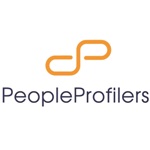Introduction
ETH Zurich is one of the leading universities of the world with a strong focus on science and engineering. In 2010 it established the Singapore-ETH Centre (SEC) in collaboration with the National Research Foundation (NRF) to do interdisciplinary research on pressing problems.
In collaboration with the National University of Singapore (NUS), the Nanyang Technological University (NTU), Duke - NUS, the National Health Group (NHG), National University Health System (NUHS), and SingHealth, SEC is undertaking a research programme on "Future Health Technologies (FHT)". It addresses some immanent health challenges by developing a future-oriented Mobile Digital Health Conceptthat tackles the increase in patients suffering from chronic diseases such as diabetes, osteoporosis, obesity and stroke, as a consequence of a rapidly ageing population with mobile digital technologies, covering the value chain from acute care to patient's private homes.
Project Background
The healthcare systems of the future must effectively harness data to empower clinicians so that they can focus on delivering patient care while leveraging AI to uncover patterns beyond human capacity to detect, enhance diagnostic accuracy, optimize workflows, and improve risk communication. For effectively utilizing AI to achieve this end, access to large datasets from clinical practice remains a challenge as data privacy can prevent the transfer of sensitive data from sites of collection to large compute infrastructure. One approach for overcoming this in development of AI models for health, is federated analysis that has only been utilized for this purpose to a limited extent. For widespread use of federated methods, software infrastructure is needed that can handle diverse data sources as well as for optimizing model training across different consumer hardware.
One area of particular interest for research on AI for health is seamless incorporation of scientific models (which frequently are image-based) into AI toolchains. Examples for use of such models in health research are e.g. CFD models for cardiovascular applications and FE models in musculoskeletal health assessment. Merging scientific modelling technologies with other important data sources from clinical practice will allow researchers to leverage established laws and insights to drive the development of sophisticated learned models that can revolutionize diagnosis and care.
With this project, we aim to develop robust infrastructure that supports large-scale, expert-driven scientific endeavours, ensuring the effective application of AI in the field of musculoskeletal health. Focus will be on the seamless integration of advanced model-based biomechanical markers of bone health into AI workflows.
Applicants are invited to apply for a Post doctoral fellowship at the SEC. Funding is available for one year with a potential extension.
Job description
The post doctoral fellow will be embedded into a team of researchers that is working on improving the management of the risk of injurious falls in Singaporean elderly.
Some key components in the work are:
- Developing infrastructure for effective application of AI in this field.
- Accelerate the GNN/Tformer computations such that they run fast on consumer GPUs in a hospital setting.
- Use GNNs for embedding X-ray based clinical scans, for driving innovation in scientific AI applications.
- Applying for external funding.
- Co-supervision of PhD, MSc and BSc students
Requirements
Successful candidates will hold a PhD degree and strong background in computer science, mathematics (especially optimization), parallel computing, compilers, (performance) optimization, and/or computer systems. Candidates should be able to work (mostly) independently on a complex topic and must be highly motivated. Since our research topics are related to different fields (mathematics, computer science, computational science) candidates should be able to learn quickly and study topics independently. Good C/C++ and Python knowledge, and experience in software development as well as willingness and ability to work formally are required. Some background in parallel computing or high-performance computing is desirable. Experience in using software-engineering tools such as git and common associated development processes is required as well as knowledge of Bayesian methods and their applications in machine learning. Applicants need to be proficient in written and spoken English.
Info on application process
We look forward to receiving your application including the following documents: (1) a cover letter with a specific statement of your motivation for the project, (2) your CV including the name and contact information of 2 references, (3) and a copy of your university transcripts as PDFs.
For further information about the SEC: https://sec.ethz.ch/.
Work location: 1 Create Way, CREATE Tower, Singapore 138602 (NUS University Town)
Further information about The Singapore-ETH Centre can be found on our website: https://sec.ethz.ch/
The Singapore-ETH-Centre is an equal opportunity and family-friendly employer. All candidates will be evaluated on their merits and qualifications, without regards to gender, race, age or religion.
























